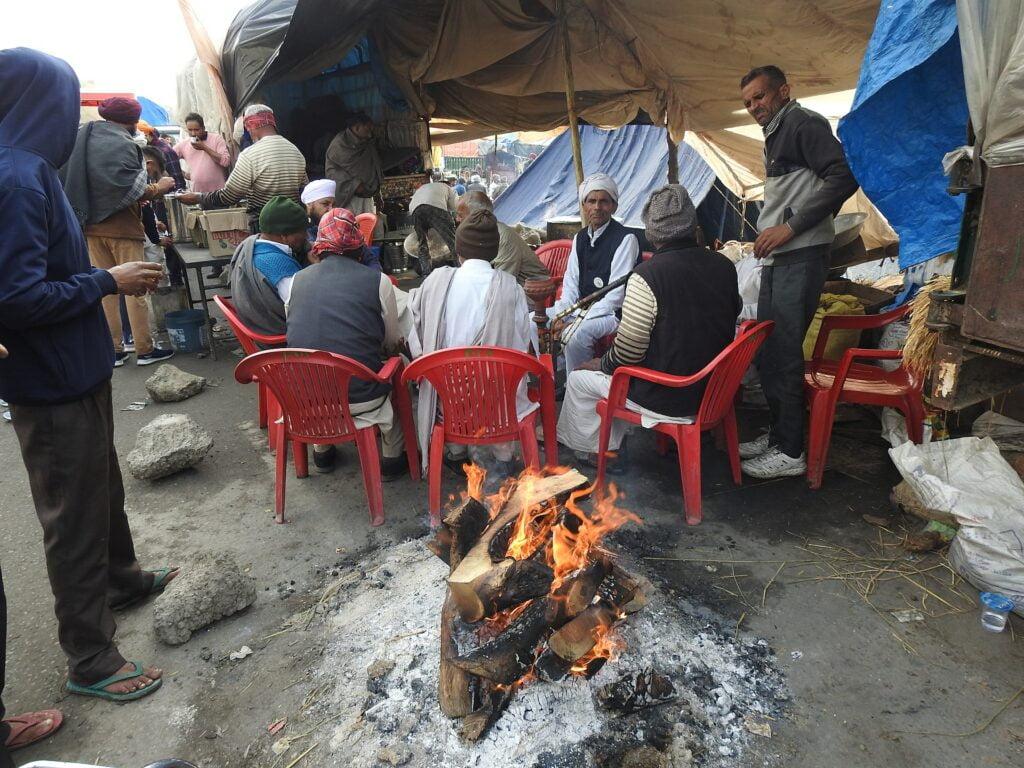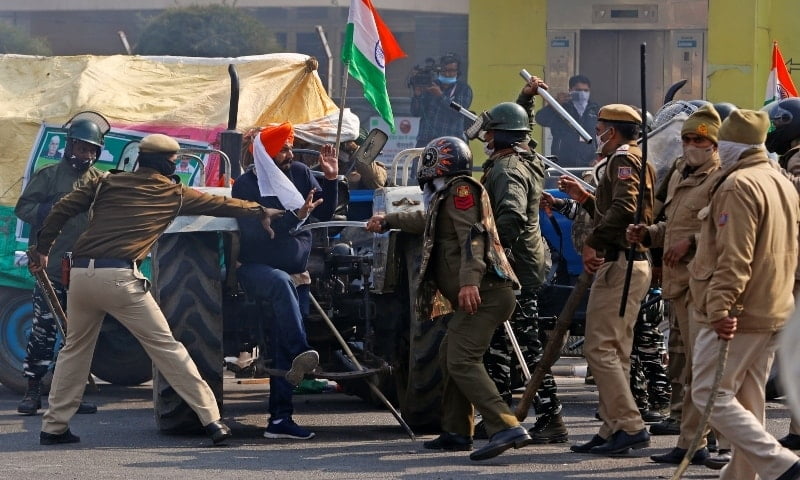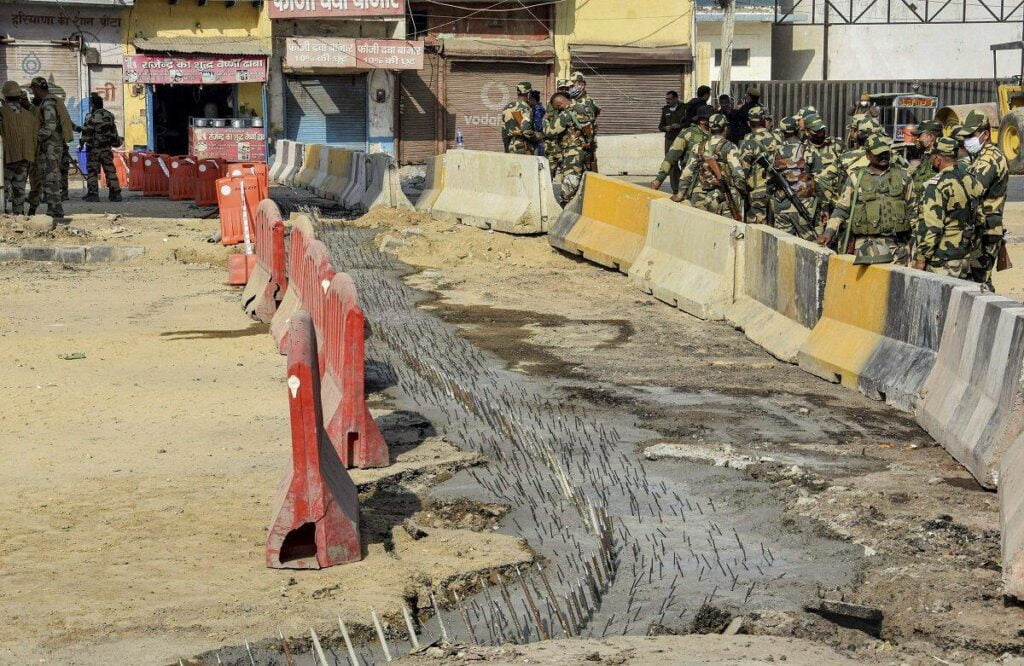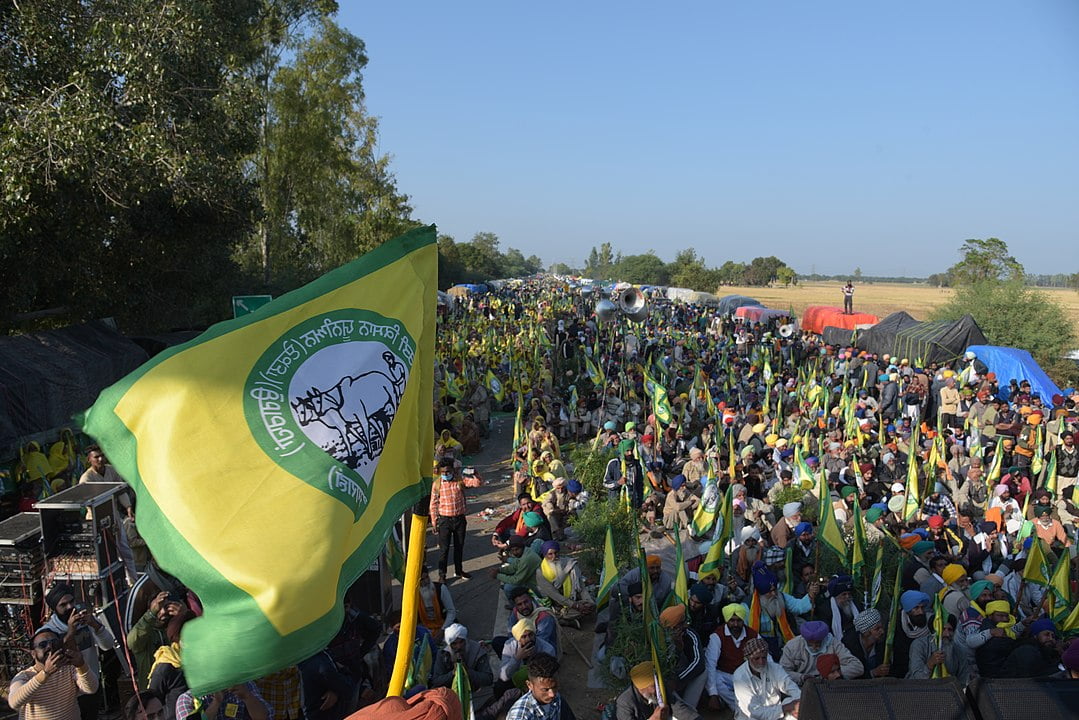Indian farmers majorly from the state of Punjab, Haryana, and Uttar Pradesh have been protesting against India’s new agricultural laws for over 10 months now. The three new laws are aimed to change the way farmers sell their produce.
Reportedly, these laws will liberalise the agricultural market through the direct engagement of farmers and corporates. However, farmers are contesting that it will weaken their position and give power to the large corporates to regulate the prices of their produce. Moreover, these laws will undermine farmers’ autonomy as cultivators and create monopolies in the grain markets.
Although the matters relating to agriculture legally comes under provincial or state governments, the three agriculture laws were passed by the central government as trade and commerce bills without even having a meeting with farm unions or other stakeholders.
Living in sprawling camps at the borders of the capital New Delhi since November 2020, the farmers have not only faced the deadly covid wave but the extreme weather conditions in winter as well as in summer. But this is not the most challenging part of the protest.

State authorities and the police have not been very cooperative with the farmers. A number of incidents of brutal police actions have been witnessed over the past few months.
Recently, the police in Haryana lathi-charged protesting farmers at Karnal. The farmers were trying to get to the Bharatiya Janta Party’s meeting where state BJP leaders including CM Manohar Lal Khattar and Haryana party president Om Prakash Dhankar were present to discuss the coming panchayat polls. Around ten farmers are badly injured during the protest.
What was more horrifying was the viral video of Karnal sub-divisional magistrate Ayush Sinha, a 2018 batch IAS officer where he was seen instructing the police “to beat up farmer protesters and not to let anyone breach the security cordon without a broken head.”
Defending the police action and orders by the SDM, Haryana CM Manohar Lal Khattar commented that, “Although the officer’s choice of words was not correct, strictness had to be maintained to ensure law and order situation there was kept under check.”
The response by the state authorities and the police is not surprising. At the beginning of the protest in November, thousands of farmers from different states marched to New Delhi. In the peaceful protest, violence soon escalated as police used tear gas and water cannons to restrict the farmers from entering the capital city.

Also read: Farmers Protest: Delhi Chalo March Continues Despite Tear Gas, Water Cannon Attacks
The brutality of the police reached its peak after the 26th January protest in New Delhi. On India’s Republic Day, some protesters forcefully entered Delhi by breaking the police barricades. Putting a halt to the peaceful protests, a group of protesters breached the Red Fort and hoisted the Sikh religious flag alongside the national flag of India.
In response to this, police once again used tear gas and water cannons on the farmers on the Delhi-Haryana border. In this violence, many protesters were injured and one protester died. Moreover, police arrested over 120 people including two senior citizens after this incident.

Even a few journalists who were covering farmer’s protests on the Republic Day of India were arrested under the charges of sedition and promoting communal harmony. One of these journalists was Mandeep Punia, a freelance contributor to The Caravan who was arrested after he posted a 15-minute long video on what he saw at the site of the protest.
In that video, he mentioned how a group of over sixty people carrying national flags pelted stones and threw a bomb at the protesters in the presence of more than a thousand policemen. Two of the stone pelters were associated with BJP.
In an article in The Caravan, he shared the stories of some farmers who were with him at the Tihar jail. One of the farmers named Jasminder Singh, 43-years-old from Perron village of Punjab had bruises all over his body which was the result of police brutality.
On January 29, Jasminder had gone to buy vegetables and other supplies in Narela near the Singhu border of Delhi, when the police picked him along with several other farmers and locked them in Tihar jail.
Despite the cruel treatment by the police, Jasminder’s intends to fight towards the repeal of the agriculture laws. He said, “What does the government think—that it will break our spirits by jailing us? That is a big misconception. We will not turn back until these laws are repealed.”
Though after the 26 January violence, farmers have resolved to the peaceful protests, the state has continued to use harsh measures to stop the protesters.
In the Rohtak road near the Delhi border, over 2000 iron nails were embedded in the road as reported by the Indian Express in February 2021. These iron nails were aimed at puncturing the tyres of the farmers coming from Haryana to join the protest. Police personnel further added that cement was poured at the iron nails placed at the wooden frames in order to hold the tyres from moving.
The road with iron nails along with the already existing metal barricades at the Delhi-Haryana border had not only made the coming of farmers to join protest difficult, but it also caused inconvenience to the farmers living on the protest site.

Farmers are facing difficulties in crossing the muddy trench to get to the other side of the barricaded area for medicines as most of the medical camps are beyond the barricades. Additionally, metal barricades are acting as a hurdle for even passing the water tankers for the protesters on site.
In a democratic country, everyone has a right to express their opinion and the harsh treatment of the protesting farmers by the police has been difficult to watch. For stopping the protests, police has resorted to things like jailing the farmers or beating up the protesters. These actions are not only inhuman but also undemocratic.
On several occasions, the government has shown interest in negotiation with the farmers but has failed to reach any agreement. Farmers’ unions are looking at a long-term solution instead of short-term government proposals like suspension of the laws for 12-18 months.
Farmers have stood strong against all the odds and the protests are aimed to continue until the corporate-driven agricultural laws are not fully repealed.
Also read: How Are The Recent Farmers’ Protests In India A Feminist Issue?
Featured image source: Randeep Maddoke/Wikimedia Commons
About the author(s)
Pragati Parihar is a masters student, studying International Relations at University College Dublin, Ireland, and is highly interested in topics such as feminism, gender based violence, and gender representation in politics. Also a travel enthusiast and an avid reader of mythology!




